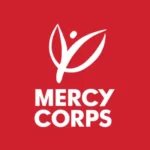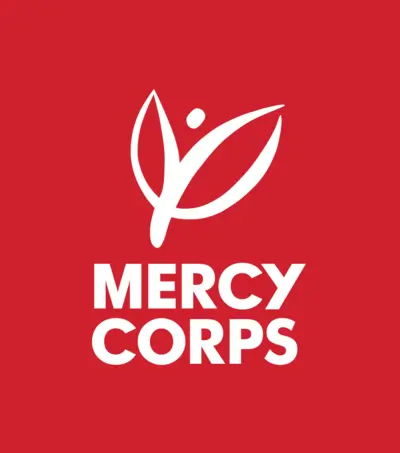
Mercy Corps
Background:
Mercy Corps is a leading global organization powered by the belief that a better world is possible. In disaster, in hardship, in more than 40 countries around the world, we partner to put bold solutions into action — helping people triumph over adversity and build stronger communities from within.
Over the past eight years, Mercy Corps has established a reputation for quality and timely data and analysis through its network of Crisis Analysis teams. Through Crisis Analysis, the agency has carved out a niche among information providers in the humanitarian and development space, owing to the granularity, reactivity and holistic approach of our products, which focus on some of the most hard-to-reach, data-poor and complex contexts requiring assistance. This is underpinned by Mercy Corps’ status as an operational INGO, which ensures that analysis products are practicable and relevant for humanitarian actors.
Purpose / Project Description:
Mercy Corps’ Crisis Analytics (CA) unit will develop a drought and flooding monitoring system and dashboard in three of the Middle East (ME) region’s most climate affected countries with significant population displacement: Syria, Iraq, and Yemen. Currently, there is no user-friendly system that draws actionable connections between climate risks and consequences for underserved populations in the ME, leaving a knowledge gap that hampers the effectiveness of humanitarian programming. In response to this reality and ECHO’s priority of contributing to stronger data collection on analysis on disaster and climate-related displacement, the monitoring system will visualise drought conditions on an interactive map and provide statistics on the humanitarian impact of medium and longer-run weather and climate dynamics. Historic flood extent will be measured using satellite imagery analysis and visualised in another module, which will provide statistics on the humanitarian impact of, as well as the number of people likely displaced by, future flooding. The medium-run weather forecasts will be used as the basis for an early warning system that provides multiple threat levels that change in accordance with weather forecasts, suggesting more likely or severe flooding or drought conditions. This warning system, designed in collaboration with Mercy Corps’ programme teams, will be available on each module and to the humanitarian community, and will inform an anticipatory action framework based on the projected humanitarian impact of flooding or drought conditions. Additionally, quarterly narrative outputs will provide analysis of emerging climate impact trends, rapid onset event impact assessments, and programmatic, policy and donor recommendations, while providing an evidence base to support effective anticipatory action and enable humanitarian actors to make better decisions for effective programming and resource allocation.
The Middle East Regional Data Analysis Hub (MERDAH) is a platform where quantitative indicators developed by ME Crisis Analysis teams can be accessed, analyzed, and downloaded. The dashboard aims to show MC’s capacity to develop timely and relevant quantitative analysis in the ME region and for other peers and external stakeholders to use, and to eventually serve several key objectives/purposes as part of our evidence-driven commitment. Dashboard modules are regionally cross-cutting by theme or approach; for example, agriculture analysis (theme) or price predictions (approach). The MERDAH currently covers Syria, Iraq, Palestine, Lebanon, and Yemen. The MERDAH will also host the drought and flooding anticipatory action modules produced for the ECHO-funded MEACAM project.
Consultant Objective:
The MEACAM Researcher will lead on drafting a white paper about the concept behind the MEACAM project, and will write two (2) country analyses[1] on climate-related topics specific to Yemen and Iraq (2 analyses for each country, one each quarter). The white paper will be drafted in conjunction with the Regional Data Analysis Specialist and involves the following three components: 1.) Review of existing publicly-available data analysis tools focused on climate, migration, and humanitarian impact, 2.) Identification and explanation of high priority climate/migration/humanitarian related information needs understood by key informant interviews of relevant Mercy Corps team members on the Syria, Yemen, and Iraq country missions, and 3.) Developing a plan to address the priority information needs with further data analysis products.
The Iraq and Yemen reports must be about the impact of climate change on migration and/or humanitarian need, and led by quantitative data analysis results delivered by the MEACAM data analysis modules on the MERDAH. The Researcher will produce two (2) analyses for each country, which will be written by the Researcher with advisory and editorial support from the Yemen team, Mercy Corps Iraq country team, Regional Data Analysis Specialist, and Regional Crisis Analysis Lead. The report centered on findings of the MEACAM’s quantitative data analysis may also include qualitative data collected by the Researcher.
Outputs:
1 white paper = 10 days
2 quarterly Iraq analyses = 25 days (12.5 each)
2 quarterly Yemen analyses = 25 days (12.5 each)
Total – 5 outputs, 60 days
Consultant Activities:
- Work with the Regional Quantitative Analysis Specialist on the MEACAM white paper. (March/April 2024)
- Produce two (2) analysis papers on the impact of climate change on internal migration, internally displaced populations, and humanitarian need in Yemen. (due in June and September, 2024)
- Produce two (2) analysis papers on the impact of climate change on internal migration, internally displaced populations, and humanitarian need in Iraq. (due in June and September, 2024)
- Each country paper will require key informant interviews, desk research, and data analysis from the MEACAM climate modelling dashboard.
- Present research findings at MEACAM quarterly update events, and to the Yemen and/or Iraq country teams and key stakeholders (upon request).
- Attending coordination calls and planning sessions.
Required Experience & Skills:
- 5-10 years of experience in a technical relevant field.
- 4+ years of independent research (academic and/or professional).
- Demonstrated ability to ideate original research questions.
- Contextual understanding of the MENA region, specifically Iraq and Yemen.
- Understanding of climate change issues facing the MENA region, specifically Iraq and Yemen.
- Experience writing based on quantitative data analysis results, including geospatial analysis.
- Experience collecting data from secondary sources.
- Experience gathering qualitative data from key informants.
- Strong English writing skills
- Strong briefing, communication and presentation skills.
- Experience within humanitarian, development or conflict analysis settings and knowledge of the humanitarian sector preferred.
Timeframe / Schedule:
Work to be completed according to deadlines noted above, ending start of October 2024.
The Consultant will report to:
Regional Quantitative Analysis Specialist
Consultant will work closely with:
Regional Crisis Analysis Advisor. Mercy Corps’ Iraq, Syria, and Yemen teams.
Diversity, Equity & Inclusion
Achieving our mission begins with how we build our team and work together. Through our commitment to enriching our organization with people of different origins, beliefs, backgrounds, and ways of thinking, we are better able to leverage the collective power of our teams and solve the world’s most complex challenges. We strive for a culture of trust and respect, where everyone contributes their perspectives and authentic selves, reaches their potential as individuals and teams, and collaborates to do the best work of their lives.
We recognize that diversity and inclusion is a journey, and we are committed to learning, listening and evolving to become more diverse, equitable and inclusive than we are today.
Equal Employment Opportunity
We are committed to providing an environment of respect and psychological safety where equal employment opportunities are available to all. We do not engage in or tolerate discrimination on the basis of race, color, gender identity, gender expression, religion, age, sexual orientation, national or ethnic origin, disability (including HIV/AIDS status), marital status, military veteran status or any other protected group in the locations where we work.
Safeguarding & Ethics
Mercy Corps team members are expected to support all efforts toward accountability, specifically to our stakeholders and to international standards guiding international relief and development work, while actively engaging communities as equal partners in the design, monitoring and evaluation of our field projects. Team members are expected to conduct themselves in a professional manner and respect local laws, customs and MC’s policies, procedures, and values at all times and in all in-country venues.
[1] Each report is approximately 10 pages/5,000 words.
How to apply
To apply: http://app.jobvite.com/m?3i5r5nwL
Deadline: 26-Jan-24

